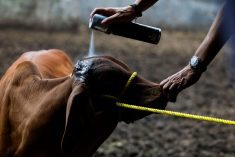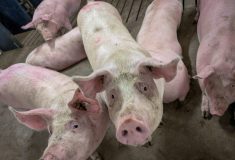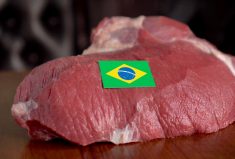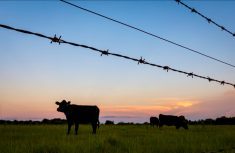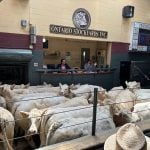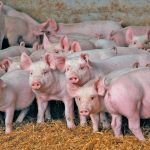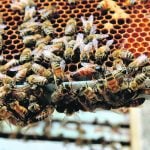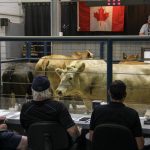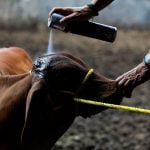A corner of west London saw culinary and scientific history made Monday when scientists cooked and served the world’s first lab-grown beef burger.
The in-vitro burger, cultured from cattle stem cells, the first example of what its creator says could provide an answer to global food shortages and help combat climate change, was fried in a pan and tasted by two volunteers.
The burger was the result of years of research by Dutch scientist Mark Post, a vascular biologist at the University of Maastricht, who is working to show how meat grown in petri dishes might one day be a true alternative to meat from livestock.
Read Also
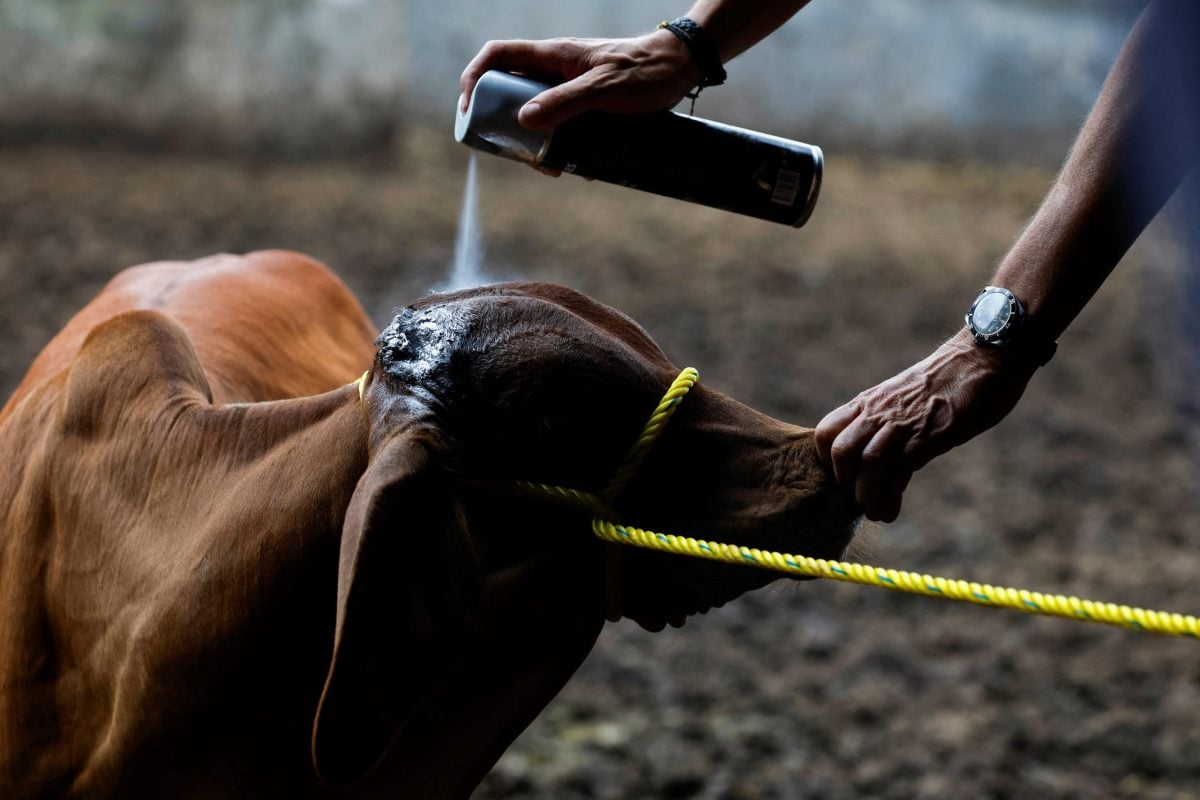
Mexico reports 53 per cent increase in flesh-eating screwworm cases since July
Mexico has recorded 5,086 cases of flesh-eating screwworm in animals as of August 17, a 53 per cent jump from the number of cases reported in July, according to Mexican government data seen by Reuters on Wednesday.
The meat in the burger was made by knitting together around 20,000 strands of protein that has been cultured from cattle stem cells in Post’s lab.
The tissue is grown by placing the cells in a ring, like a donut, around a hub of nutrient gel, Post explained.
To prepare the burger, scientists combined the cultured beef with other ingredients normally used in burgers, such as salt, breadcrumbs and egg powder. Red beet juice and saffron were added to bring out its natural colours.
“Our burger is made from muscle cells taken from a cow. We haven’t altered them in any way,” Post said in a statement Friday. “For it to succeed it has to look, feel and hopefully taste like the real thing.”
According to a news report Monday from the Associated Press, both taste-testers — U.S. journalist Josh Schonwald and Austrian nutritionist Hanni Ruetzler — found the burger had similar texture to conventional meat but lacked flavour due to its lack of fat.
The AP report quoted a Norwegian biotech expert as saying further flavour could be provided by allowing cattle stem cells to develop into fat cells.
Viable alternative?
Success, in Post’s view, would mean not just a tasty burger, but also the prospect of finding a sustainable, ethical and environmentally friendly alternative to meat production.
According to a 2006 report by the U.N. Food and Agriculture Organization (FAO), industrialized agriculture contributes on a “massive scale” to climate change, air pollution, land degradation, energy use, deforestation and biodiversity decline.
The report, entitled Livestock’s Long Shadow, said the meat industry contributes about 18 per cent of global greenhouse-gas emissions and this proportion is expected to grow as consumers in fast-developing countries such as China and India eat more meat.
According to the World Health Organization (WHO), annual meat production is projected to rise to 376 million tonnes by 2030 from 218 million tonnes in 1997-1999, and demand from a growing world population is expected to rise beyond that.
Post cites FAO figures suggesting demand for meat is expected to increase by more than two-thirds by 2050.
Animal welfare campaigners applauded the arrival of cultured meat and predicted a great future for it.
“In vitro technology will spell the end of lorries full of cows and chickens, abattoirs and factory farming,” the People for the Ethical Treatment of Animals (PETA) campaign group said in a statement. “It will reduce carbon emissions, conserve water and make the food supply safer.”
A study published in 2011 comparing the relative environmental impacts of various types of meat, including lamb, pork, beef and cultured meat, said the lab-grown product has by far the least impact on the environment.
Hanna Tuomisto, who conducted the study at Oxford University’s Wildlife Conservation Research Unit, found that growing meats in-vitro would use 35 to 60 per cent less energy, emit 80 to 95 percent less greenhouse gas and use around 98 per cent less land than conventionally produced animal meat.
Post reckons commercial production of cultured beef could begin within the next 20 years.
“What we are going to attempt is important because I hope it will show cultured beef has the answers to major problems that the world faces,” he added.
— Kate Kelland is Reuters’ Health and Science Correspondent in London, England. Updates added Monday via AGCanada.com Network staff.


